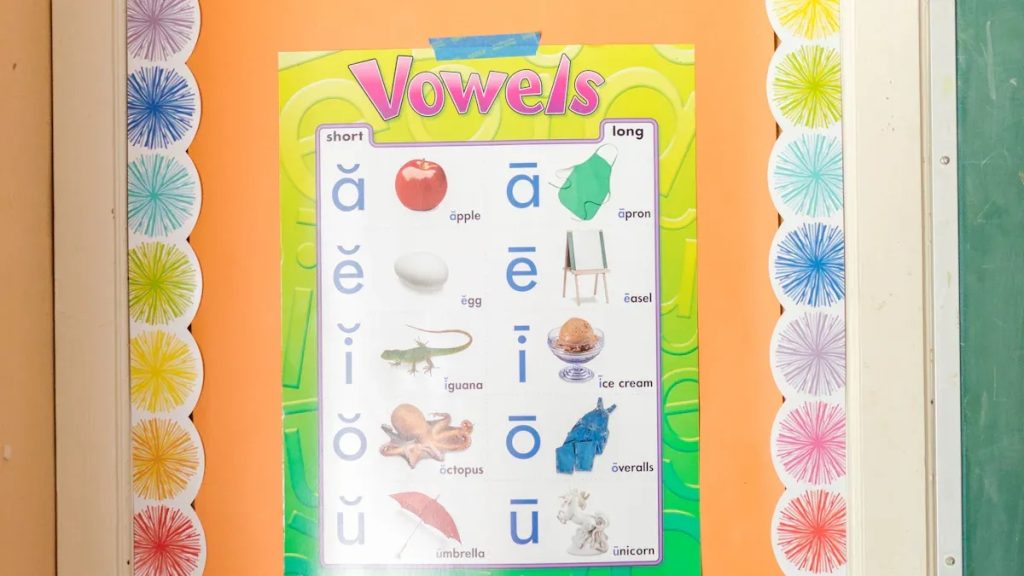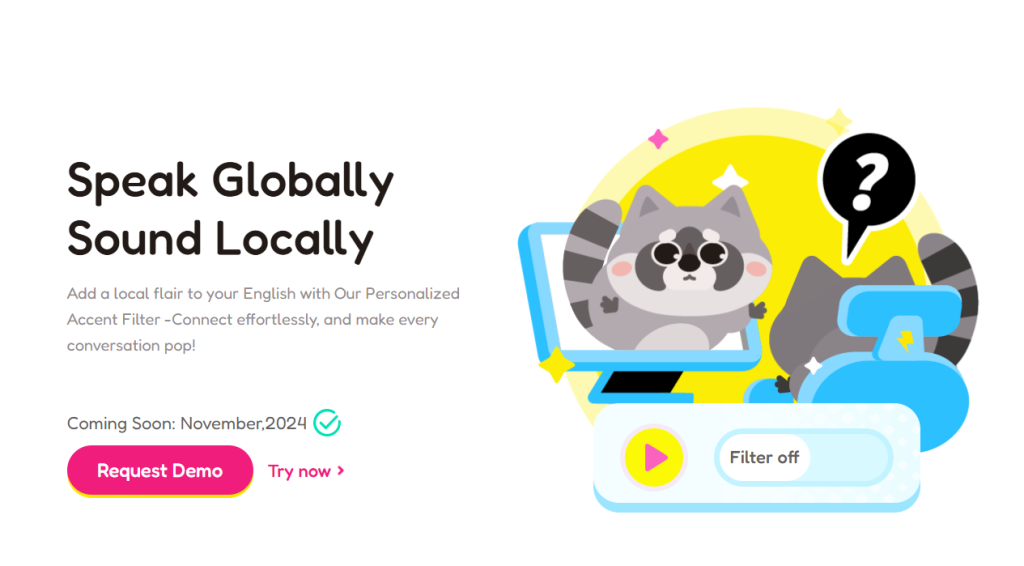Yes, if you want to learn how to get rid of accent when speaking English, it’s definitely possible to sound like a native speaker. This process requires time, patience, and a lot of practice. Accent reduction doesn’t happen overnight. Experts recommend getting regular feedback and doing exercises tailored specifically for you. You need to consistently work hard to learn new ways to pronounce words and how to use your voice like a native speaker. To sound more natural, use common expressions and listen carefully to how native speakers talk. Try different techniques, such as mimicking their speech, and consider using special tools designed for accent improvement. Keep in mind, every native speaker also developed these skills over time.
- Why Do People Want to Get Rid of Their Accent?
- Understanding Your Native Accent
- Key Techniques to Reduce Your Accent
- Common Myths About Speaking English Like a Native
- Success Stories and Case Studies
- FAQs
Why Do People Want to Get Rid of Their Accent?
Have you ever wondered why so many people want to change the way they speak english? If you are learning english, you might notice that your accent sometimes makes it harder for others to understand you. Many english learners want to sound more like native speakers for several reasons.
- You want to be understood clearly when you speak english. Sometimes, a strong accent can cause confusion or make it tough for others to catch what you are saying.
- You may hope to get better jobs or do well in interviews. In many english-speaking workplaces, clear communication is important. Employers often look for people who can speak english smoothly and confidently.
- You might feel more comfortable joining conversations with friends or coworkers. When you speak english without a strong accent, you may feel less nervous and more willing to share your ideas.
- You want to avoid misunderstandings or stereotypes. Some people judge others based on how they speak. By reducing your accent, you can help others focus on your skills and personality instead of your speech.
- You may have lived in an english-speaking country for a long time and want your speech to match your new home. For some, speaking english like a native feels like a way to fit in and show their cultural identity.
Tip: If you work in a field where safety or teamwork matters, speaking clear english can make a big difference. People need to understand you quickly and easily.
Sociolinguistic research shows that a strong accent can sometimes make it harder to find a job or make friends in english-speaking places. Some people may judge your abilities just because of how you sound. This can feel unfair, but it happens. By working on your english pronunciation, you can open more doors and feel more confident in every part of your life.
Remember, you do not have to lose your accent completely. Many english learners just want to be understood and feel comfortable. Your accent is part of who you are, but learning to speak english clearly can help you reach your goals.
Understanding Your Native Accent
If you want to sound like a native english speaker, you need to know your own accent first. Everyone has special sounds and rhythms from their first language. These can make your english sound different from a native speaker. This is normal, so don’t feel bad about it. Try to notice which parts of your speech are different. Then, decide which english accent you want to learn.
Step 1: Decide Which English Accent to Emulate
You might ask yourself if you should sound American, British, or Australian. The answer depends on your goals and where you live or work. If you want to move to the US or work with Americans, focus on an American english accent. If you live in the UK or watch British TV, a British accent may feel easier. Some people pick an Australian accent because they like the culture or want to travel there.
Here’s a simple table showing the main differences between these accents:
| Aspect | British English | American English | Australian English |
|---|---|---|---|
| Pronunciation of ‘R’ | Softer or non-rhotic (e.g., ‘car’ pronounced without strong R) | Rhotic, pronounced clearly (e.g., ‘car’ with hard R) | Similar to British, softer ‘R’ |
| Pronunciation of ‘T’ | Often pronounced as ‘Tj’ (e.g., ‘Youtube’ as ‘Youtjube’) | Pronounced as clear ‘T’ (e.g., ‘Youtube’) | Often replaced by ‘D’ sound (e.g., ‘Better’ as ‘Beddah’) |
| Pronunciation of ‘O’ sounds | Softer ‘O’ (e.g., ‘No’ as ‘Neuw’) | Harder ‘O’ (e.g., ‘No’ as ‘No’) | Similar to British, softer ‘O’ |
| Spelling | Uses ‘s’ (organise), ‘our’ (colour), double ‘l’ (travelling) | Uses ‘z’ (organize), ‘or’ (color), single ‘l’ (traveling) | Mostly follows British spelling but with some American influence |
Tip: Listen to native english speakers from different countries. Notice how their pronunciation, intonation, and spelling change. This helps you choose the accent that works best for you.
Step 2: Analyze Your Own Accent Features
To get a better accent, you need to know what makes your speech sound different. Linguists use many ways to help you find these differences. You can try some of these at home or with a tutor:
| Method Category | Description |
|---|---|
| Case History | Think about your language background and when you started learning english. This shapes your accent. |
| Segmental Analysis | Listen for tricky sounds in english that don’t exist in your first language. Practice these using phonetics exercises. |
| Auditory Discrimination | Try minimal pairs (like “ship” vs. “sheep”) to test if you can hear and say the difference. |
| Suprasegmental Analysis | Pay attention to stress, intonation, and rhythm. These make your speech sound more natural. |
| Phonetic Transcription | Write down how you say words using phonetics symbols. This helps you spot patterns. |
| Acoustic Analysis | Use apps or tools to see your speech’s pitch and timing. |
| Self-Assessment | Record yourself and compare with a native english speaker. Ask for feedback. |
| Learner Variables | Think about your age, motivation, and learning style. These affect your progress. |
Try these easy steps to practice your accent and improve your english:
- Record yourself reading a short text. Listen for sounds that are not like your target accent.
- Use a mirror to watch your mouth move. This helps with hard sounds.
- Practice minimal pairs and focus on sounds that are tough for you.
- Shadow native english speakers by repeating after them. This helps your mouth remember the right moves.
- Ask friends or tutors to give you feedback on your pronunciation and intonation.
Step 3: Set Goals and Stay Consistent
You do not have to sound perfect. Focus on clear speech and a native-like accent that fits your life. Here is a simple plan to help you keep going:
- Check your current pronunciation and find your weak spots.
- Set SMART goals, like “I want to master the American ‘R’ sound in three months.”
- Pick resources that match your learning style, like apps or online videos.
- Make a daily routine to practice your accent, even if it’s just 10 minutes.
- Practice at home—read aloud, use mirrors, and record yourself.
- Get feedback from native english speakers or use AI tools.
- Keep your goals useful. Focus on sounding clear and confident, not perfect.
Note: It’s okay to keep some features of your native accent. Many people with a great accent still sound unique. The goal is to be understood and feel comfortable.
Why Consistency Matters
If you want to sound like a native english speaker, you need to practice often. Changing your accent or pronunciation too much can confuse people. Pick one english accent and stick with it. This helps your brain and mouth build strong habits. When you practice every day, you will see small changes. Over time, you will sound more natural and confident.
The Role of Phonetics and Intonation
Phonetics is the science of speech sounds. When you study phonetics, you learn how to move your mouth, tongue, and lips to make new sounds. This is important for a native-like accent. Intonation is the “music” of english. If you learn intonation first, you will sound more natural, even if you make small mistakes. Try to think in english as much as you can. This helps you learn the rhythm and flow of the language.
| Feature Category | British English | American English | Australian English |
|---|---|---|---|
| Pronunciation | Softer or non-rhotic ‘R’; ‘T’ often as ‘Tj’; ‘O’ sounds softer | Strong ‘R’; clear ‘T’; hard ‘O’ | Softer ‘R’; ‘A’ sounds longer; ‘T’ as ‘D’; smooth intonation |
| Spelling | ‘s’ not ‘z’; ‘our’ not ‘or’; double ‘l’ | ‘z’ not ‘s’; ‘or’ not ‘our’; single ‘l’ | Mostly British, some American |
| Historical/Cultural Influences | French influence, high culture | American Revolution, simplified spelling | British roots, Aboriginal influence, mellow accent |
Remember: When you think in english, you start to notice how native english speakers use intonation and stress. This helps you grow your english vocabulary and sound more fluent.
Practice Makes Progress
You do not have to lose your identity to get a great accent. Focus on clear pronunciation, natural intonation, and building your english vocabulary. When you practice your accent every day, you will get closer to sounding like a native english speaker. Celebrate your progress and enjoy the journey!
Key Techniques to Reduce Your Accent

If you want to lose your accent, you need the right methods. You can sound like a native if you practice every day. Let’s look at some ways that help you get a native-like accent and speak better.
Listen and Imitate Native Speakers
You learn well by listening to native English speakers and copying them. This helps your brain and ears get used to English sounds and rhythm. When you copy native speakers, you learn their pronunciation and speech patterns. You also start using contractions like “I’m” and “you’re” without thinking.
Studies show that listening and copying help more than just your accent. People who copy native speakers understand English better, even with noise. They feel more sure of themselves and seem more fluent and friendly. Many accent programs use listening and copying because these help you focus on pronunciation and rhythm.
Here are some tips for copying native speakers: 1. Watch videos of native English speakers. Look at their mouth and lips. 2. Pause and repeat what you hear. Try to match their speed and tone. 3. Turn on subtitles to follow the words. 4. Use shadowing. Speak along with the video at the same time. 5. Practice in front of a mirror. Watch your mouth and compare it to the speaker’s. 6. Record yourself. Listen and check if you sound like a native. 7. Use movie quotes or TV scenes to make practice fun.
Tip: Start with short audio clips. Focus on matching rhythm and intonation before trying longer sentences.
Practice Pronunciation of Difficult Sounds
Some English sounds are hard, especially if they are not in your first language. If you want to lose your accent, you need to practice these sounds. For example, the “th” in “think,” the “sh” in “she,” and the “ph” in “phone” are tough for many people.
Phonetic transcription helps a lot. The International Phonetic Alphabet (IPA) shows you how to make each sound. You can break words into small parts and practice each sound until you get it right. This step-by-step way makes pronunciation easier and less confusing.
Here’s how you can practice: – Use phonetic charts and listen to audio examples. – Break words into single sounds. For example, “strengths” is /s t r ɛ ŋ k θ s/. – Practice in front of a mirror to see your tongue and lips. – Record yourself and compare with a native speaker. – Use language apps that give you feedback. – Try minimal pairs, like “ship” and “sheep,” to hear and say the difference. – Repeat pronunciation exercises every day to build muscle memory.
Note: Focus on how words sound, not just how they are spelled. English words often look different from how they sound.
Work on Rhythms, Stress, and Intonation
To sound like a native, you need to learn English rhythm, stress, and intonation. English is a stress-timed language. Some syllables are longer and louder than others. You can sound more native by learning where to put stress and how to change your pitch.
Let’s compare English and French to see the difference:
| Feature | English | French |
|---|---|---|
| Rhythm | Stress-timed; timing depends on stressed syllables | Rhythm groups; no stress on individual syllables; pitch rise on final syllable of each group |
| Stress | Stress on certain syllables; changes meaning and flow | No stress on individual syllables |
| Intonation | Uses pitch to show attitude, grammar, focus, and flow; falling and rising tones | Four main patterns; rising pitch on rhythm groups; sharp fall for statements |
You can practice by listening to native speakers in podcasts, TV shows, or audiobooks. Try to copy their rhythm and intonation. Use contractions to sound more natural. Record yourself and listen for stress and pitch changes. These exercises help you sound more fluent and sure of yourself.
Try this: Read a sentence out loud. Mark the stressed words and say them louder and longer. Notice how your speech starts to sound more like a native.
Get Feedbacks from Native Speakers
You might not notice your own mistakes. That’s why you need feedback from native speakers. They can point out sounds or patterns you miss. This feedback helps you fix mistakes faster and focus on the right things.
Many learners have a “perception gap.” You may think you sound like a native, but you miss small details. Native speakers or coaches can show you the right mouth positions and give you quick corrections. You can join live classes, use speech apps, or ask friends to listen to your recordings.
Here’s how to get the most from feedback: – Work with a coach or teacher for advice. – Join online groups where native speakers help with pronunciation. – Use apps that give you feedback on your accent. – Record yourself and compare with native speakers. – Practice shadowing and ask for corrections.
Remember: Feedback helps you get better faster. Don’t be afraid to ask for help or corrections.
Use Accent Conversion Tools Like Utell AI

Technology can help you lose your accent. Accent tools like Utell AI make it easier to sound like a native, especially in meetings or presentations. Utell AI works on Zoom, Teams, and Google Meet. It gives you a natural American accent without sounding fake. You can use it for interviews, customer support, or to feel more sure of yourself.
Utell AI offers real-time accent softening, noise reduction, and better voice quality. You don’t need a hard setup. The tool helps you speak clearly and keeps your identity. It’s good for beginners and professionals.
But remember, technology is just one part of learning. You still need to practice pronunciation, intonation, and get feedback from native speakers. Accent tools can help you sound better, but real progress comes from daily practice and using contractions naturally.
Note: Accent tools can help you at work, but always balance technology with real-life practice to build a great accent and native-like fluency.
Common Myths About Speaking English Like a Native
You may hear stories about how to sound like a native speaker. But not everything you hear is true. Let’s talk about some common myths about learning english and getting native-like fluency.
- Myth 1: Only young children can master a native accent.
Some people think you must learn english as a child to sound native. But research says this is not always right. Younger kids often learn pronunciation faster. But older learners can do well too, especially in class. Studies show older kids sometimes learn english better. They know grammar and learning tricks. The important time for learning english pronunciation lasts until late teenage years, not just early childhood. - Myth 2: Spending more time in an english-speaking country guarantees fluency.
You might think living in an english-speaking place makes you fluent fast. But quality is more important than just time. Bilingual programs that help your home language can work as well as full immersion. Your speaking skills may get better in a few years. But full academic fluency takes more time. How you practice and the help you get matter more than just being around english. - Myth 3: Your native language will always hold you back.
Some people worry their first language will stop them from sounding fluent in english. But studies show your native language matters less than you think. This is true if you look at age, learning setting, and experience. With good practice, you can improve your english accent and fluency.
Don’t let these myths stop you. You can get better at english by joining live talks, recording yourself, and getting feedback from native speakers or coaches. Try language learning apps like Duolingo, Busuu, or Rosetta Stone. These tools help you track your progress, get feedback, and meet others who want to improve their english. Recording your voice and comparing it to native speakers helps you find mistakes and feel more confident. Practice often, both online and in real life, to reach your english fluency goals.
Success Stories and Case Studies
You may wonder if people really change their accent. The answer is yes, they can! Many learners have made their english accent better. They also improved how they talk with others by using the right steps and staying positive.
Here are some things that helped them:
- They learned with good teachers who gave helpful advice. The teachers made learning feel safe and friendly.
- They practiced hard english sounds many times with special exercises.
- They joined group classes or found friends to practice with. This made them feel less scared to speak english.
- They set goals that made sense for them. They did not try to sound perfect. They just wanted people to understand their english.
- They picked classes and practice plans that fit how they learn best.
“I was shy about my accent,” says Maria, an engineer from Brazil. “After joining a small english group and practicing daily, people understood me more. I felt more sure of myself and even got a job promotion!”
Studies show your attitude is very important. If you want to learn and like the english accent, you will get better faster. People who enjoy copying native speakers and feel happy in their group often do the best.
Remember, everyone learns at their own speed. Some people get better fast. Others need more time. The most important thing is to keep practicing and be proud of every small win. When you work on clear speech, you will see changes in your english, your job, and your life with friends.
You can really improve your english accent if you work hard and practice every day. Set small goals that you know you can reach. Celebrate each time you get better. Many language coaches say mistakes are normal when learning english. Mistakes help you learn, so do not feel bad about them.
- You can feel more confident by watching your progress in english. Give yourself a reward when you do something well.
- Practice english every day, even if it is only 15 minutes. This will help you get better little by little.
- Try to stay happy and enjoy learning. Changing your english accent takes time, so do not rush.
Remember: Each small step in your english helps you sound more like a native speaker. Keep practicing and have fun!
FAQs
How long does it take to reduce my accent?
You can start to notice changes in a few weeks if you practice every day. Most people need a few months to sound more like a native speaker. Stay patient and keep going.
Can I really sound like a native english speaker?
Yes, you can! If you practice often and use the right methods, you will get closer to a native english accent. Remember, clear speech matters more than being perfect.
Do I need to live in an english-speaking country to improve?
No, you do not. You can practice english anywhere. Use online videos, apps, and talk with friends. Many people improve their accent from home.
Is it bad to keep some of my original accent?
Not at all! Your accent is part of who you are. The goal is to speak english clearly so others understand you. You do not have to lose your identity.



